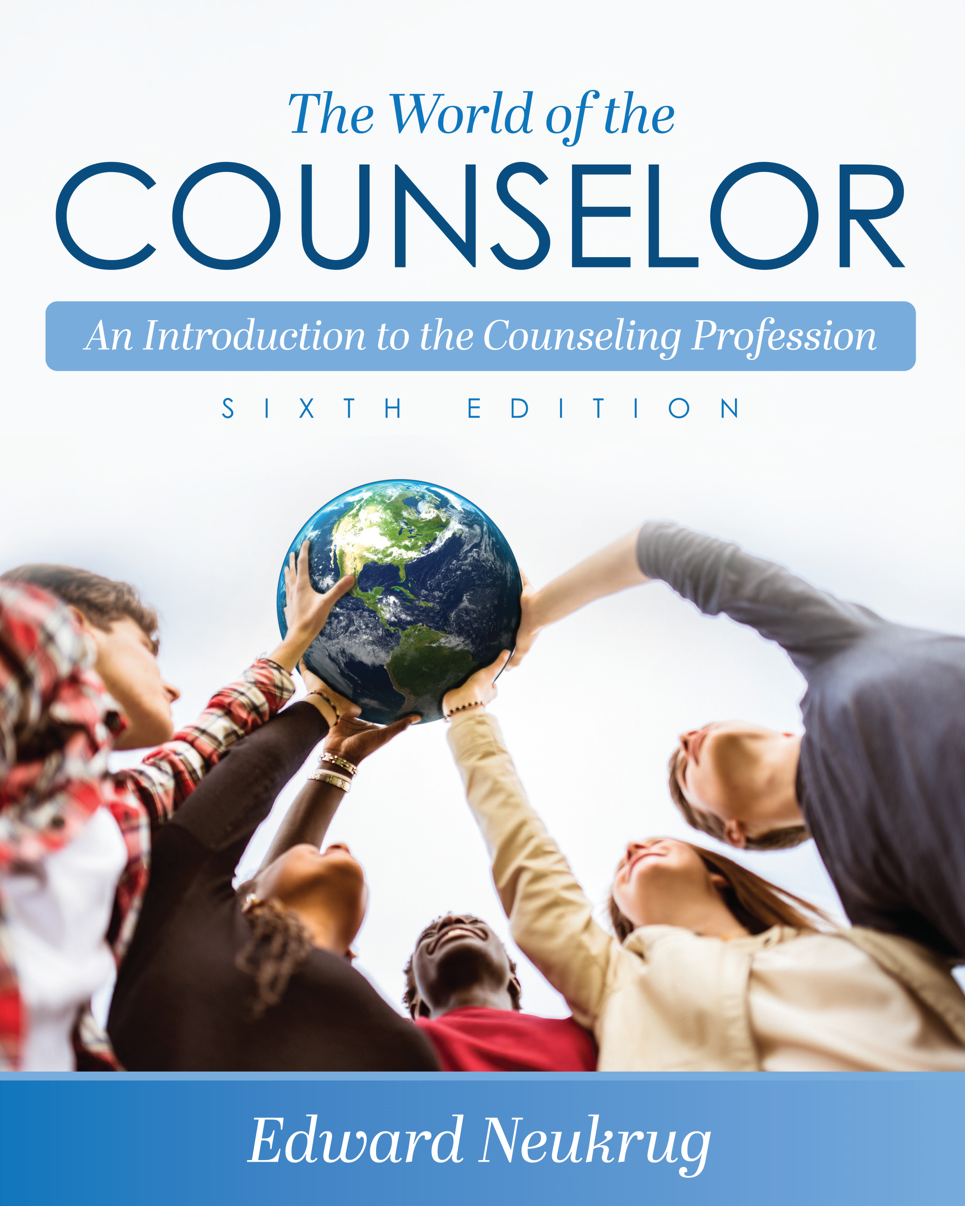The sixth edition of The World of the Counselor: An Introduction to the Counseling Profession provides readers with an illuminating window into the day-to-day realities of a practicing counselor. Comprehensive and highly practical in nature, the text presents readers with critical skills and concepts, helps them develop their professional identity, and features illustrative case examples and personal narratives to bridge theory and practice.
This new edition includes updated information within every chapter to reflect the latest ethical codes and standards, updated content on cutting-edge issues, and alignment with 2016 CACREP (Council for Accreditation of Counseling and Related Programs) standards.
This book addresses the eight common-core curriculum guidelines of CACREP: (a) professional orientation and ethical practice, (b) social and cultural diversity, (c) human growth and development, (d) career development, (e) helping relationships, (f) group work, (g) assessment, and (h) research and program evaluation. It also offers specific content in the specialty areas of clinical mental health counseling, rehabilitation counseling, addiction counseling, school counseling, and college counseling and student affairs. Adhering to the CACREP-accredited common-core areas ensures that the text complies with this important standard and offers the student a broad knowledge base.
Each of the eight common-core content areas of CACREP are covered through chapters on professional issues (e.g., history, professional organizations, characteristics of the professional counselor), standards in the professional (e.g., CACREP, credentialing, ethics, cross-cultural and social justice competence), counseling skills, counseling theories, normal and atypical human development, group counseling, couples and family counseling, testing and assessment, research, and consultation and supervision.
Here is an overview of how the CACREP common-core area guidelines are incorporated in specific sections throughout the text:


